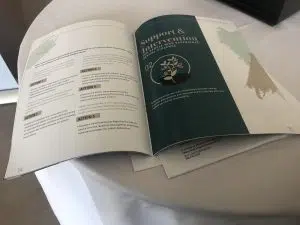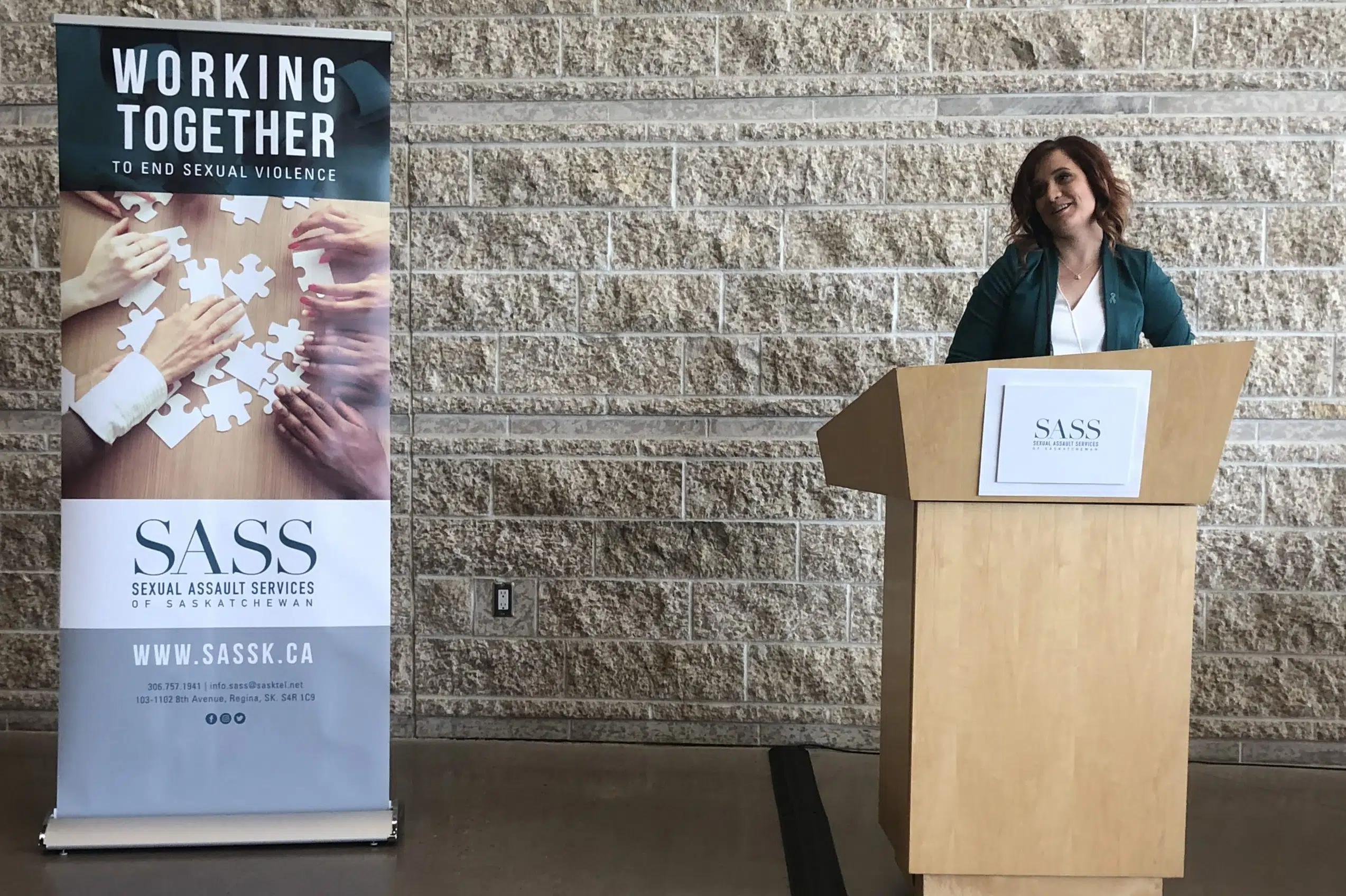A new action plan from Sexual Assault Services of Saskatchewan (SASS) is looking to continue to help bring the topic of sexual violence out of the dark.
The group unveiled the plan Monday to mark the start of Saskatchewan Sexual Assault Awareness Week. Saskatchewan has the highest rate of domestic violence in the country.
SASS spent 18 months with a committee to try to come up with an evidence-based plan to help highlight where more work needs to be done.
Project co-ordinator Patience Umereweneza said they travelled to 22 communities and spoke to more than 1,000 survivors, family members and service providers.
“We talked about prevention and education knowing that really is the foundation of addressing attitudes and beliefs,” Umereweneza said.
In total, there were 22 actions highlighted that range from empowering bystanders to act to appropriate supports and interventions available to how the legal and justice systems can change to help properly support people going through sexual violence trauma.

The Sexual Assault Service of Saskatchewan revealed its sexual violence action plan on May 13, 2019. (Britton Gray/980 CJME)
Jo-Anne Dusel was one of the advisers on the original committee. She said it’s important that lawyers and judges are properly informed so they don’t “fall prey to some of the rape myths that are out there.”
“(It’s important) that they recognize the fact that trauma impacts the way victims remember incidents that are a crisis like a sexual assault,” Dusel said.
Sexual assault and violence has been more in the public eye in recent years with the #MeToo movement and many high-profile cases. From 2017 to 2018, Regina saw a 38.6-per-cent increase in the number of reported sexual assaults. During that same time frame, Saskatoon saw a rise of 10.3 per cent.
Last week, the Regina Police Service announced the implementation of the Philadelphia Model, which allows outside organizations to review how police officers are conducting sexual assault investigations.
SASS executive director Kerrie Isaac said she has noticed a shift during her three years at the organization.
“It’s a difficult conversation to talk about and because it’s so normalized and it’s so entrenched in a lot of the communities in Saskatchewan, it has really allowed individuals to come forward and be heard and be believed,” Isaac said.
While a shift is happening, Isaac said there are still lengthy wait lists at many of the agencies in the province.
Umereweneza said the action plan might not improve reporting rates or conviction rates, but the hope is that when survivors go through the services, they are treated with dignity and respect.
The organization received funding for three years from the federal government to create its plan. With that funding set to expire in about a year, the SASS will need to find funding from other sources. That could include going to the province, going back to the Ottawa or even asking businesses to get involved.
A committee will be created to determine the funding strategy and how much will be needed.
The report can be found online.











